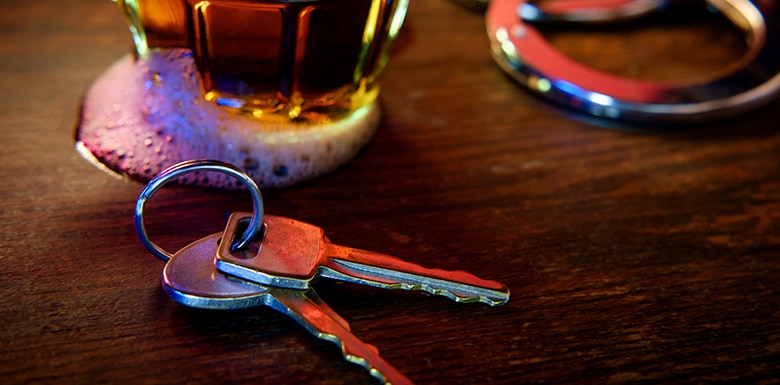Home | 5 Myths About Indiana OWIs

Driving under the influence (DUI), or operating while intoxicated (OWI) as it is called in Indiana is a serious charge with serious consequences.
An OWI conviction can result in steep fines, a suspended license, jail time, getting fired, and a permanent mark on your criminal record. It’s never wise to take an Indiana OWI lightly or try to handle things yourself. Your best option for getting through an OWI with as little negative impact on your life as possible is to work with an experienced OWI lawyer.
At Hessler Law, we know how to handle OWI charges in Indianapolis the right way, so you have the best possible shot at keeping your job, your license, your freedom, and your record clear. Call Hessler Law, PC at (317) 886-8800 for free consultation.
Indiana OWIs: Fact vs. Fiction
Being arrested for OWI is scary, but not everything you hear reflects the reality of your situation. Here are five common myths about OWIs:
1. DUIs Cause 50% of Highway Fatalities.
This commonly quoted statistic is simply false. It comes from a reported 40 or 50% of all fatal accidents being alcohol-related. However, “alcohol-related” actually means that someone involved in the accident had a detectable amount of alcohol in their system. It could be a driver, a passenger, or a pedestrian who was hit. In reality, around 10% of highway fatalities are caused by drunk drivers.
2. Breathalyzers Accurately Measure BAC
Breathalyzersare not always a consistent measurement of your blood alcohol content. A breathalyzer measures the amount of alcohol in a person’s exhaled air, which does not always correlate with someone’s blood alcohol level. BAC is highly dependent on the situation and the person.
A breathalyzer reading can be affected by things like body temperature, rate of respiration, and any substance in the mouth that may contain alcohol, including stomach fluid from vomiting, toothache medicine, mouthwash, or certain breath fresheners.
3. BAC Reliably Indicates Impairment
Regardless of how high someone’s BAC is, their level of impairment depends on a number of variables. Someone with a higher tolerance is usually less impaired even with a high BAC. Your sex, when you drank and how you paced your consumption will all play a role in how your BAC relates to your level of impairment.
4. Lowering the Legal Limit Reduces Drunk Driving
Most people arrested for OWI have a blood alcohol level between .15 and .17%. Lowering the blood alcohol content level below .08 will do little to get people off the road who represent a serious threat.
5. Just Cooperate if You’re Stopped for OWI
It’s always important to be courteous to law enforcement. But remember, anything you say can be used to help prosecute and convict you later.
The police are entitled to ask for identifying information such as your name and license, and for vehicle paperwork such as registration and proof of insurance. Questions like “where are you coming” from and “how many drinks did you have?” are designed so you incrimiinate yourself and admit to drinking and driving. Even field sobirity tests are optional and open to interpretation.
Always Consult an OWI Lawyer
Being charged with an OWI is frightening and usually someone’s first run in with the law. But keep in mind no case is hopless, and there is a lot you can do to protect yourself. As you can see mistakes happen and there’s a lot of misconceptions about OWI’s. When the facts are on your side, you stand a good chance of keeping your license and getting the charge reduced or even dismissed for drunk driving.
The first step is contacting Sean Hessler, who can explain your situation and how to best move past it.
At Hessler Law, PC, we have an excellent record of helping people successfully resolve OWIs. We’re happy to discuss your circumstances and how we can help. Call us at (317) 886-8800 for a free and confidential consultation.
